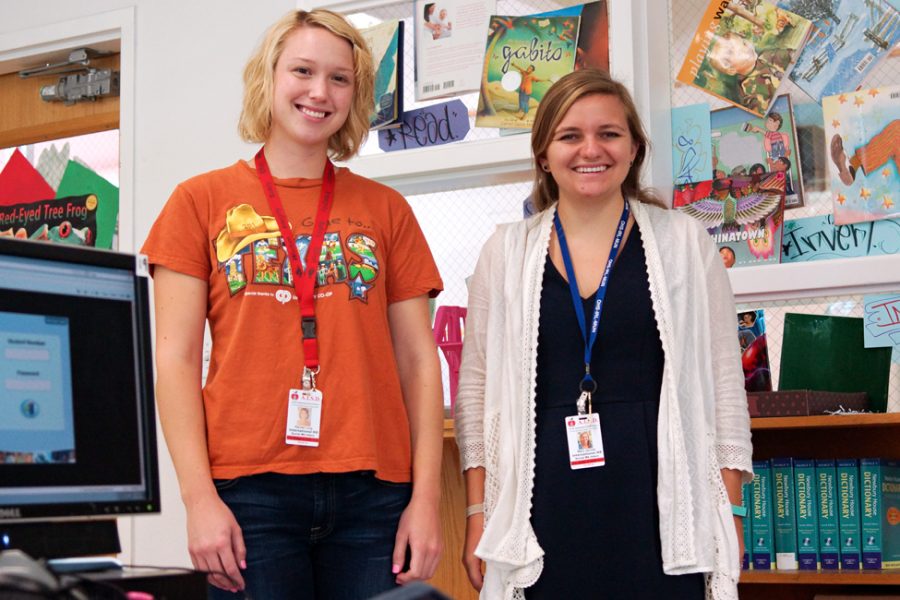Every Thursday at International High School, each staff member wears a college T-shirt. The tradition is an important one — its purpose is to encourage students to believe that they, too, can one day be accepted to college. This would be a huge accomplishment for any student at the Austin school, as each of them has recently immigrated to America.
“There are two requirements [for admission],” Principal Susan Galvan said. “The first is that it’s [the student’s] first time in the United States, and the second is that they don’t know any written English.”
While students work to learn English and get accustomed to a new culture, they face major challenges in their personal, academic and home lives. This is where the school’s social workers come in. Social work seniors Rachel Long and Mary Jacobs were both placed at International High School for their field work internships. Galvan said the interns are a huge asset.
“They’re amazing,” Galvan said. “They give so much of themselves. They get to know the students. They’re at lunch duty, around campus and in classrooms helping teachers. They listen to their journeys and to what’s going on in their lives.”
As an intern, Long said she and Jacobs complete a wide variety of tasks that differ day to day. She said most of the challenges, surprisingly, don’t come from the students but rather from school policies, such as standardized testing.
“It’s hard to see how policies made affect the services we provide for our students,” Long said. “Things like standardized test scores matter for this population and for this school. If they’re low-performers — which they’re going to be because some of them don’t speak English and have never had a formal education before — that affects how much money is given to the school and how much staff we have.”
Despite the difficulties, Long and Galvan both agreed that their students’ positive attitudes affect the environment of the school substantially.
“They’re so happy,” Long said. “They deal with so much more than the typical U.S. kid, yet they’re so happy.”
Rosie Arredondo, social service specialist for the high school, said the high school’s counseling services are crucial.
“The reality is, if you run a school and only focus on the academics, you’re missing half of the picture,” Arredondo said. “You need to be able to have services that serve the students as a whole human being — not just their academic side but their emotional and basic needs as well.”
Arredondo said she is moved by how her students react to the challenges they face because they are so different from the typical struggles of a high school teenager. She said many of the kids have difficult and emotional stories, especially those who come from war-torn countries.
“These kids are coming in with so many different issues that are hindering their ability to come into the classroom and learn their ABCs,” Arredondo said. “They’re trying to not just adjust to a new language but to adjust to a new culture and a new family. They’re adolescents, and they’re dealing with what’s going to happen in their future, hormones and body changes — all of that stuff, too.”















